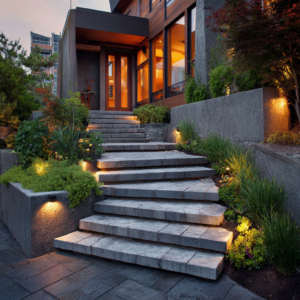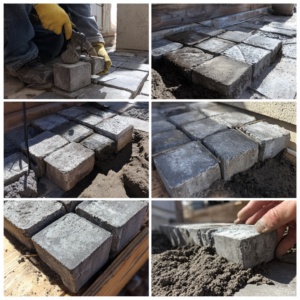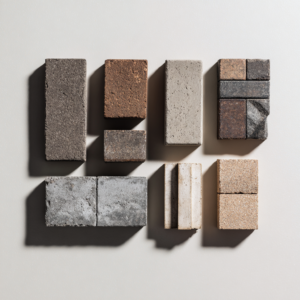When it comes to enhancing outdoor spaces, few manufacturers can compete with Belgard. Their products have emerged as a popular choice for homeowners and landscape architects alike. But how thick are Belgard pavers?
This question might seem unimportant for people who have never worked with pavers, but any homeowner who has planned a paver installation can tell you that the thickness of pavers is much more important than it looks.
One crucial factor that contributes to the durability and performance of pavers is their thickness – so keeping that in mind is extremely important when planning an installation. Let’s dive into the subject!
Read as well: How to clean Belgard pavers thoroughly
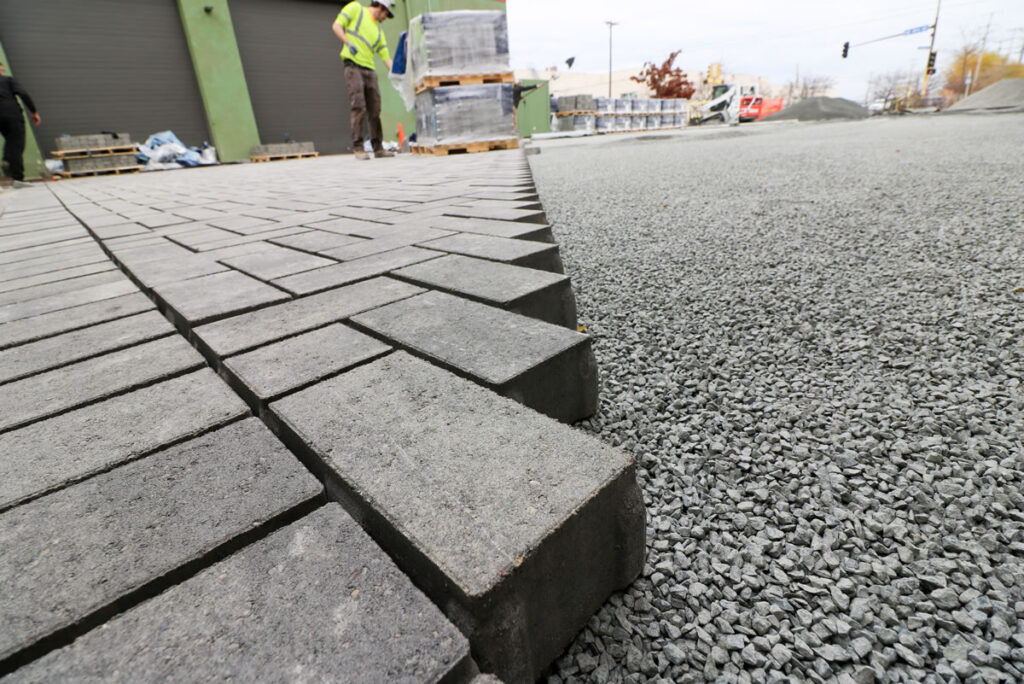
Jump to:
How thick are Belgard pavers?
Belgard offers a diverse range of paver options, meticulously crafted to cater to a multitude of aesthetic preferences and functional needs.
60mm (2 3/8 inches)
Belgard’s 60mm pavers, measuring 2 3/8 inches in thickness, are a versatile and popular choice, primarily designed to cater to pedestrian zones. These 60mm pavers seamlessly integrate into residential projects, providing an aesthetically pleasing yet functional solution for outdoor spaces.
Whether utilized for patios, walkways, or driveways with light to moderate traffic, these pavers excel in delivering a solid surface that withstands the test of time.
The 60mm thickness strikes an ideal balance, ensuring stability and resilience while maintaining a streamlined and contemporary appearance. This thickness is especially well-suited for areas that experience foot traffic and occasional vehicle use, making them an excellent choice for driveways in homes where vehicular movement is moderate.
Beyond their structural integrity, Belgard’s 60mm pavers boast a diverse range of styles, colors, and finishes – thus allowing for customization that complements the overall design theme of any outdoor space.
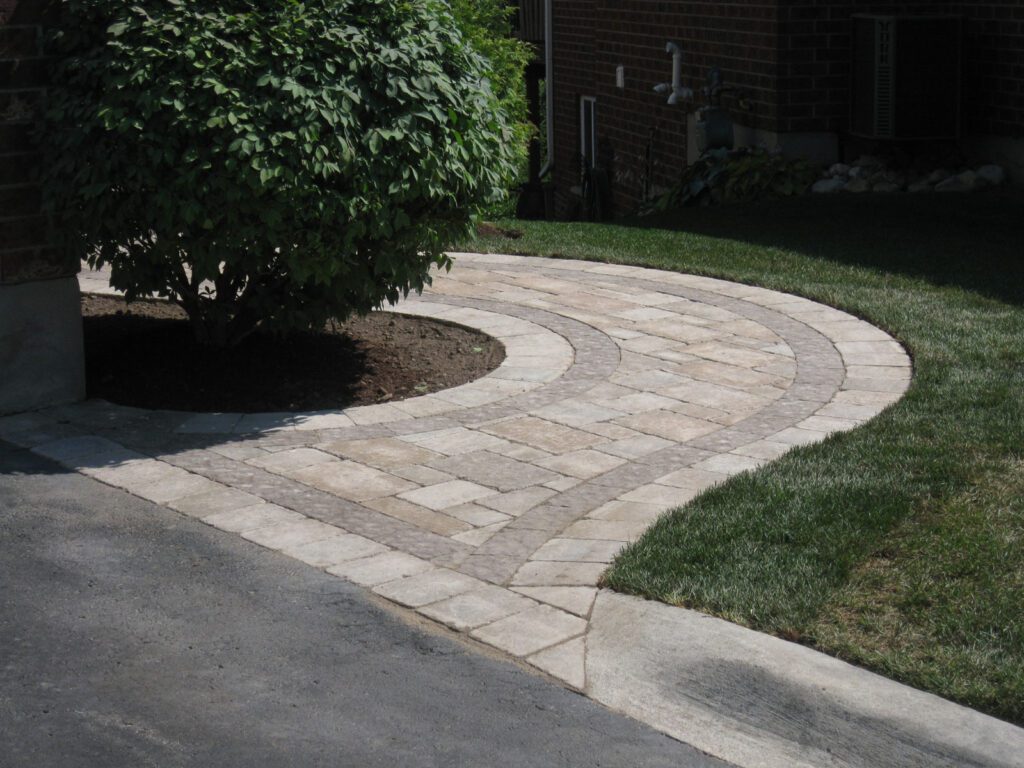
80mm (3 1/8 inches)
The 80mm (3 1/8 inches) pavers stand out as a highly versatile and robust option, catering to a wide range of applications in both residential and commercial settings.
One of the key advantages of these pavers lies in their increased thickness, which enhances their load-bearing capacity, making them particularly well-suited for areas that experience heavier loads and moderate vehicular traffic.
These pavers are specifically engineered to meet the demands of driveways, providing a durable and long-lasting solution for areas where vehicles regularly traverse.
The heightened thickness not only ensures the structural integrity of the pavers but also contributes to their ability to withstand the constant stress and pressure exerted by vehicles, ensuring longevity and minimal wear and tear.
In residential applications, the 80mm pavers offer a stylish and practical solution for various hardscape projects. Whether used for creating pathways, patios, or outdoor living spaces, these pavers bring a robust quality that adds both aesthetic appeal and functional reliability.
Their adaptability allows homeowners to seamlessly integrate them into diverse design schemes, complementing the overall aesthetic of the property while offering a durable surface for various activities.
The composition of these pavers is typically designed to withstand the elements, ensuring resistance to weathering, erosion, and other environmental factors. This makes them a reliable choice for outdoor applications, where exposure to varying weather conditions is inevitable.
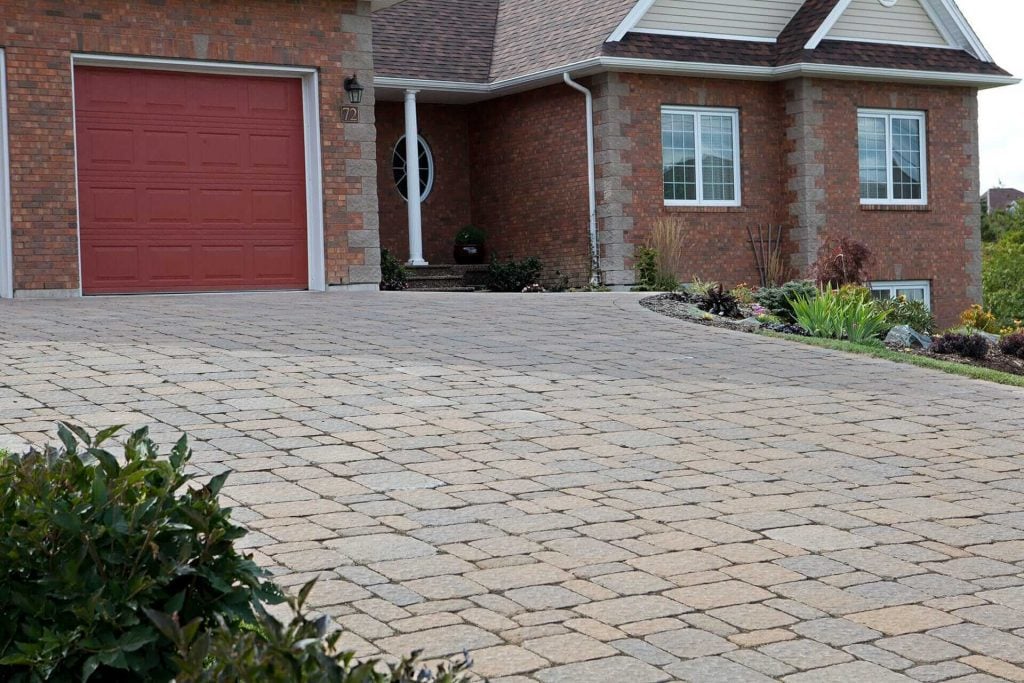
100mm (3 15/16 inches)
For projects that demand even greater durability and load-bearing capacity, Belgard offers 100mm (3 15/16 inches) pavers. These robust pavers stand out as the ideal choice for applications demanding the utmost in performance, particularly in high-traffic commercial settings like expansive parking lots and industrial spaces.
The increased thickness of these pavers enhances their ability to withstand heavy loads, making them a reliable solution for areas where durability is paramount. Whether faced with the constant stress of vehicular traffic or the challenges posed by industrial machinery, these pavers excel in providing long-lasting stability and support.
The manufacturing process of these pavers adheres to stringent quality standards, ensuring consistency and reliability in every individual paver. This meticulous attention to detail results in a product that not only meets but exceeds industry expectations, providing a solid foundation for projects that demand the highest performance standards.
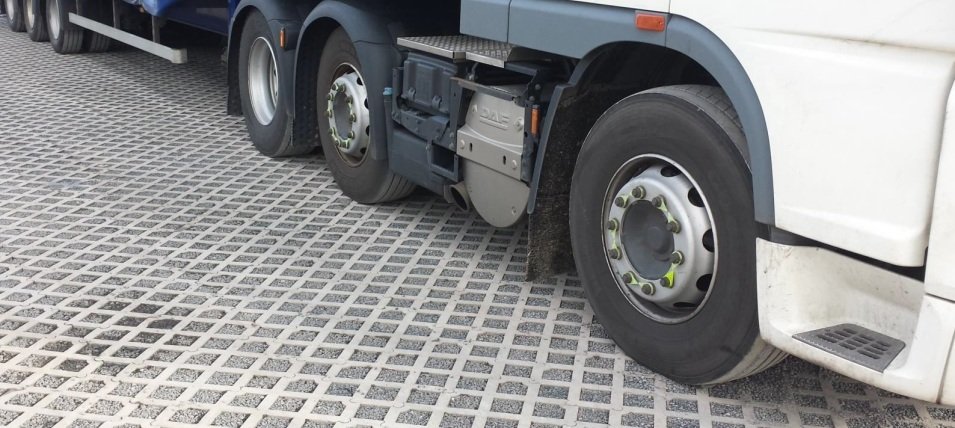
Choosing the right thickness for your project
As we mentioned, choosing the right thickness for your pavers is crucial to ensure they withstand the intended use of your project and environmental conditions.
First, consider the primary purpose of the paved area; high-traffic areas like driveways and commercial spaces require thicker pavers to withstand heavier loads and constant use. For lighter applications such as garden pathways or patios, thinner pavers may be suitable.
Evaluate the weight that the pavers will bear. Thicker pavers offer greater load-bearing capacity and are more suitable for areas where heavy vehicles or equipment may be present. Residential driveways, for example, may benefit from thicker pavers to handle the weight of cars and occasional delivery trucks.
Climate plays a significant role in determining paver thickness, so that needs to be considered as well. In regions with freeze-thaw cycles, thicker pavers are recommended to resist cracking caused by expanding ice. Hot climates may also necessitate thicker pavers to withstand thermal expansion and contraction.
Assess the soil stability of the installation site. Unstable or poorly compacted soils may require thicker pavers to prevent settling and uneven surfaces. Consult with a landscaping professional or engineer to determine the appropriate thickness based on soil conditions.
The method of paver installation can also impact the required thickness. Thicker pavers may be necessary for certain installation techniques, such as sand-set or mortar-set applications, so consult with a qualified installer to determine the best installation method for your specific project and the corresponding paver thickness.
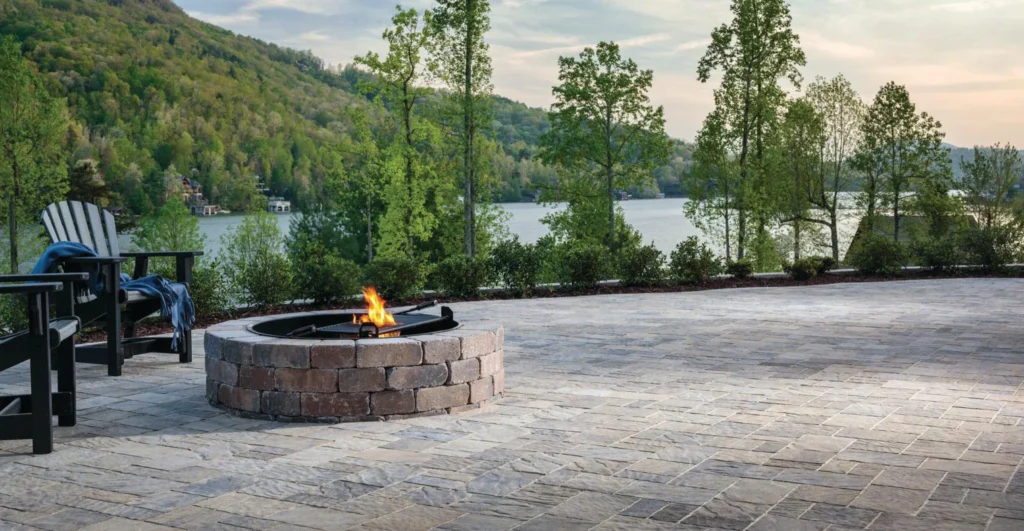
Start planning your installation today!
Next time you wonder how thick are Belgard pavers, you’ll know the many different applications for each thickness and might start planning your hardscape installation with much better information. Nevertheless, as you can see, determining the right thickness for your project is not exactly a walk in the park.
Choosing the right thickness for your pavers involves careful consideration of various factors, including the intended use, load-bearing requirements, climate, soil conditions, installation method, and aesthetic preferences. It is essential to strike a balance between functionality and aesthetics to achieve a successful and long-lasting paver installation.
For that reason alone, consulting with professional hardscape contractors can provide valuable insights tailored to your specific project, ensuring that the chosen paver thickness meets your needs and expectations. So find a professional you can trust around your area before making any final decisions.
And if you happen to be around Sarasota County, FL, why not reach us here at JS Brick to help you with your project?
For the past 23 years, we’ve been serving the region with the best hardscape services, with a high satisfaction rate from our customers. So get in contact with us right now for a free estimate on our services – we can add you to our long list of satisfied customers sooner than you think.

